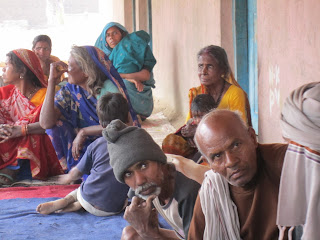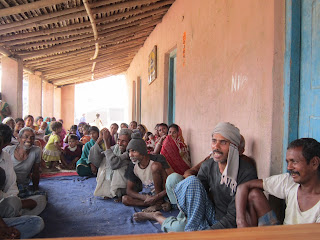On 23rd Feb., We had a Japanese special class. I taught parts of Kanji form, and map of Japan.
This time, new other students joined the special class. And I explained why do they study Japanese language, and future plan.
I teach students Japanese language not only Hiragana and Katakana which are easier to write but also Kanji.
Kanji are unlimited and very difficult to remember many of them because they have complicated shapes.
For native user of Kanji like me, it is more easier to read the sentences with kanji comparing to without Kanji. Kanji are pictorial form of written style, so if you can understand the meaning of essential Kanji shapes, you will be able to understand complicated Kanji too. Difficult Kanji are made by being jointed with some essential Kanji shapes.
I taught the students parts of Kanji so that they can understand more complicated Kanji in further class.
Having taken much time for teaching the parts of Kanji, time for teaching map of Japan became very short.
And we had a dictation test in Japanese. They did good!
I love the salmon pink colour of the sunset in India. It is good to spend a time with family drinking chai (milk tea) every morning and evening. In India, time flows slowly than other countries like Japan. I came from Japan. I married an Indian and live in India. I live together with my husband's family. My husband and I run 2 hotels in Bodhgaya. We also run free school for poor children. I would like to introduce my amazing life in India.
Tuesday, February 26, 2013
12 students passed the first exam of super 30 institute aiming for IIT
I was so happy and surprised to hearing the news from a principle of our school.
12 students passed the first exam of super 30 institute (http://en.wikipedia.org/wiki/Abhayanand#Super_30) in patna aiming for IIT. (IIT- Indian Institute of Technology http://en.wikipedia.org/wiki/Indian_Institutes_of_Technology)
20 students took the exam, and 12 students passed including 4 girls!
Great!
They will take second exam and interview, after that if they passed all the exam, they will get a chance to be selected for super 30. The selected super 30 students will study in the institute to prepare for Engineering exam and IIT for free!
I don't know how to express what I am feeling and how excited...!
Monday, February 11, 2013
Mobile clinic and meeting with villagers
We visited a village with a mobile clinic team on 7th Feb.2013.
The doctor explained us that they have changed villages to consult within 5 or 6 years.
Withing those years, the villagers were trained and obtained all the knowledge.
Then they change village to visit.
The pharmacist showed us how to compound medicines.
The patients register their name and address, then they take doctor's check up.
All the symptoms and diagnosis will be written on the register note,
and doctors note too.
They use homeopathy medicine mainly but also they use western medicine.
The medicine especially given for women are Irons and vitamins.
When they found more serious patient, they advise him to go to clinic or hospital introduced by them.
Mobile Clinic
After seeing clinic, we attended a meeting with villagers.
The mobile clinic team (doctor and NGO staff) and local social workers and villagers discussed many things.
The topics were:
* Toilets
*Vaccination for children
*Care for pregnant women
Women are very shy and they merely spoke to, but sitting there and listening to the discussion.
A villager said that there is a big change after the mobile clinic has come to this village.
The change was thinking of villagers about vaccination and medical care through the health education.
Before the mobile clinic came, some villagers kept their children hiding from nurse who came to give the vaccination. The villagers were afraid of children getting fever.
Now, they understood and make children take vaccination.
They have decided to select and convince some villagers to build their toilets with the government service within a month.
The local social worker will research and make lists of pregnant women, and children who are seriously malnutrition.
Meeting(1)
Meeting(2)
Meeting(3)
Japanese special class(science)
We had a Japanese special class on 9th Feb. at Surya Bharti School in Bodhgaya.
We learned about science (3rd grade in elementary class in Japan) in Japanese.
It was "The components of the plants".
I explain in English and Hindi.
The structure of sentences of Japanese are very similar to Hindi, so it is easy to explain in Hindi.
We studied Kanji (difficult form) too.
In the next class, which subject will be chosen to teach...?
Friday, February 8, 2013
Visiting villages with mobile clinic (Health Education)
We started You tube channel! You can find us @ NGOChildrenAid.
On 7th Feb.2013, ladies teachers of Surya Bharti School went to villages with a mobile clinic team run by NGO Root Institute in Bodhgaya. It was about one hour by car to get to the villages where it is located near the border of Bihar and Jharkhand state.
Dr.Sanjay sir explained to the teachers about the activity and what is the purpose of his team. It was very interesting for me and lots of wisdom as a social worker has given us.
Before starting the mobile clinic, NGO facilitator and a social worker from the village explained about diseases. This time, TB (tuberculosis) was explained. The facilitator said that they came here not only for giving villagers the medicine but also giving them knowledge of the diseases so that they can prevent being ill by themselves.
On 7th Feb.2013, ladies teachers of Surya Bharti School went to villages with a mobile clinic team run by NGO Root Institute in Bodhgaya. It was about one hour by car to get to the villages where it is located near the border of Bihar and Jharkhand state.
Dr.Sanjay sir explained to the teachers about the activity and what is the purpose of his team. It was very interesting for me and lots of wisdom as a social worker has given us.
Before starting the mobile clinic, NGO facilitator and a social worker from the village explained about diseases. This time, TB (tuberculosis) was explained. The facilitator said that they came here not only for giving villagers the medicine but also giving them knowledge of the diseases so that they can prevent being ill by themselves.
I went to the institute in Gaya for the preparation of engineering exam for IIT with our ex-students(in 11th grade). It took one hour only picking up the students to get to the institute. The students are from villages, but trying very hard to achieve their dream. We are supporting them. www.ngochildrenaid.com
Meeting with villagers about health education
Meeting with villagers about health education in a village, Bihar, India on 5th Feb.2013.
We discussed how we can co-operate and what we can do together.
The place where we had the meeting was very familiar for me because it was the starting point of our activity. The building was built by my husband as a school, after our school shifted to next village, we donated the building to the village for public. Then it was used as governmental school and a clinic. We talked to the village leaders to give us a permission to use one of the rooms for our activity of health education. The leader said, "it was yours, you donated this building, so it is unnecessary to get a permission from us".
We decided about the selection of the comity members will be done by the villagers, and the members are 5 gents and 5 women. And they will select 2 social workers (a man and a woman) in order to work with us.
A teacher told about domestic violence by husband, she said it is bad and men should take care of their wives as goddess (Devi in Hindi, after marriage, the wives are called "Devi" in custom in Bihar. Devi means goddess.). Then, the leader said "You are right. Wives are goddess. But recently, we admire them as goddess Kali(very strong goddess in Hindu)."
We laughed together.
We had a great time with them.
We discussed how we can co-operate and what we can do together.
The place where we had the meeting was very familiar for me because it was the starting point of our activity. The building was built by my husband as a school, after our school shifted to next village, we donated the building to the village for public. Then it was used as governmental school and a clinic. We talked to the village leaders to give us a permission to use one of the rooms for our activity of health education. The leader said, "it was yours, you donated this building, so it is unnecessary to get a permission from us".
We decided about the selection of the comity members will be done by the villagers, and the members are 5 gents and 5 women. And they will select 2 social workers (a man and a woman) in order to work with us.
A teacher told about domestic violence by husband, she said it is bad and men should take care of their wives as goddess (Devi in Hindi, after marriage, the wives are called "Devi" in custom in Bihar. Devi means goddess.). Then, the leader said "You are right. Wives are goddess. But recently, we admire them as goddess Kali(very strong goddess in Hindu)."
We laughed together.
We had a great time with them.
Saturday, February 2, 2013
Japanese special class
On 2nd Feb.2013
Japanese special class on "Music".
Today, I taught my students "Music" in Japanese special class. I used the lyrics of "Ue o muite arukou (Sukiyaki song)" and "Tsubasa o kudasai (Wing to fly)". I explained the meanings of each words and kanji with drawing pictures so that they can remember them well. One student asked me about grammar that he found in the lyrics. I could know that he studied by himself before the class. After learning the words and kanji, we sang the songs together. I asked the students "Which subject do you want to study in next Japanese class?". Then, the student who asked before replied "Kagaku!(Science)" in Japanese. I was so impressed and I thought I should keep up with his passion to learn Japanese...! The students hope to study in Japan in the future. Slowly, but day by day, they are going forward to achieve their dreams. I'll try hard for them!
Japanese special class on "Music".
Today, I taught my students "Music" in Japanese special class. I used the lyrics of "Ue o muite arukou (Sukiyaki song)" and "Tsubasa o kudasai (Wing to fly)". I explained the meanings of each words and kanji with drawing pictures so that they can remember them well. One student asked me about grammar that he found in the lyrics. I could know that he studied by himself before the class. After learning the words and kanji, we sang the songs together. I asked the students "Which subject do you want to study in next Japanese class?". Then, the student who asked before replied "Kagaku!(Science)" in Japanese. I was so impressed and I thought I should keep up with his passion to learn Japanese...! The students hope to study in Japan in the future. Slowly, but day by day, they are going forward to achieve their dreams. I'll try hard for them!
Subscribe to:
Posts (Atom)





































